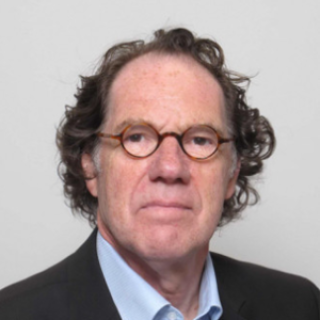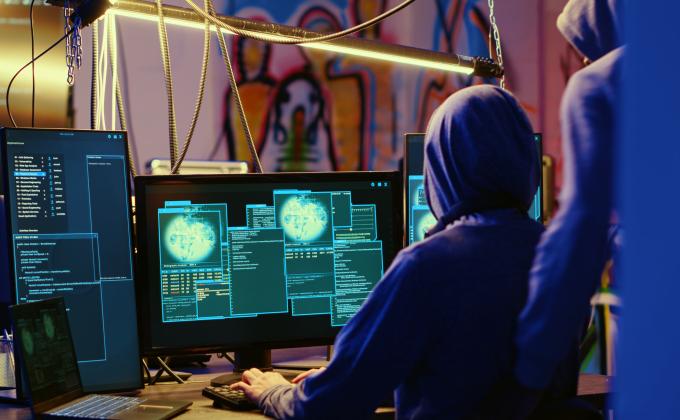On Thursday 29 March, ICCT hosted a seminar with Visiting Research Fellow Dr. Arun Kundnani on “The Changing Nature of Far-Right Ideologies”. ICCT’s latest addition to its staff, Dr. Kundnani is researching approaches to effectively countering violent right-wing extremist narratives.
Ten years ago, the 9/11 attacks announced an era of increased focus on the threat of Jihadi terrorism. However, the increased counter-terrorism discourse of the past years may in fact have contributed to the growth of new terrorist threats from far-Right groups, which have appropriated the official narratives of the war on terror for their own ends. In his keynote lecture Dr. Kundnani argued that the danger we face is an escalating spiral of violence: Radical Islamists, far-right groups and governmental policies could be mutually reinforcing each others’ narratives, leaving communities caught in the crosshairs of radicalised identity politics and ineffective, potentially counter-productive, state responses.
Dr. Kundnani focused specifically on the English Defence League – who have emerged over the past few years as a far-right extremist group in Britain – as a case-study of the counter-jihadi movement. This ‘counter-jihadist’ movement presents an ideological mix in which Islam is viewed as an extremist political ideology, multiculturalism is seen as enabling ‘Islamification’, European governments are regarded as weak and complicit in the face of this totalitarian threat, and old-style racism, anti-Semitism and authoritarianism are rejected. He discussed to what extent the EDL differs from existing far-right groups. While their ideology seems to be a mix of many, the narratives constructed by the group as a whole is in fact strikingly similar to that of the ‘traditional’ far-right: The narrative constructs subject positions of who ‘we’ are and who ‘they’ are, by attempting to unite a diverse range of groups against Islamic extremism. It sets out a relationship of conflict between ‘we’ and ‘they’. And it sets out the obstacles to victory in that conflict, such as failed government policies.
Based on his argument that the official narrative of the war on terror – as propagated by UK government ministers and reflected in more broader European security policies – has been appropriated by counter-jihadist groups such as the EDL in order to reshape far-right ideology, Dr. Kundnani concluded with a set of recommendations for appropriate governmental responses to the danger posed by this:
- Governments should recognise that racially motivated violence, like terrorism, aims at instilling fear in a community for political ends, and that it – when carried out by organised far-right groups – represents as dangerous a threat to community safety as jihadi or other forms of political violence. Consequently, tactics used to tackle the criminal threat of the far-right should match those available to tackle domestic jihadi criminal activity;
- Independent community initiatives that build genuine partnerships between Muslims and others in working-class communities around shared social issues should be developed, in order to undermine the dividing narrative of radicalised forms of identity politics;
- Governments should become more aware of the spiral of increasing anti-terrorist legal powers, increasing surveillance of wider sections of the population, and increasing demonisation;
- Official security policy narratives should be reconsidered, to avoid performative effects on far-right movements.
Dr. Kundnani was followed by Dutch right-wing extremism analyst Dr. Jaap van Donselaar (Leiden University). Although Dr. van Donselaar agreed that groups like EDL emphasise the changing nature of far-right groups, he argued that this is nothing new under the sun. Right-wing extremists can be seen over time to continuously adapt to changing social and political environments, include new friends and target new enemies. Dr. van Donselaar explained the fluid nature of such groups along three dimensions: interaction with society, organisational form and ideology. The standard interaction of such groups after 1945 has been conflict, running both the risk of stigmatisation and governmental repression. Through adaptation, far-right groups have learned to survive, but this comes them with a dilemma: they cannot be too extreme so as to invoke legal and/or societal repression, but not too moderate so as to be seen as being as weak and politically correct as the establishment and current governments. The changing social and political environment also influences the chosen organisational form of right-wing extremist groups, be it underground movements, militias, or political parties. Lastly, Dr. van Donselaar emphasised that there is no consensus on ideology among those groups nor among researchers. In fact, the typologies utilised by academics are often their own construct to more effectively categorise the different groups, who are very likely not to agree with that categorisation. In general, four broad characteristics of right-wing extremism can be discerned: a positive attitude towards the self, an aversion to the other, an aversion to political opponents, and a desire for authoritarianism.
Following the presentations of the two speakers, an interactive discussion took place with the audience. Debate focussed on the various implications of the analyses of the speakers on policy and society.
Dr. Kundnani and ICCT – Director Peter Knoope recently commented upon the gathering of European far-right groups in Aarhus, Denmark. The full articles can be found here and here.




